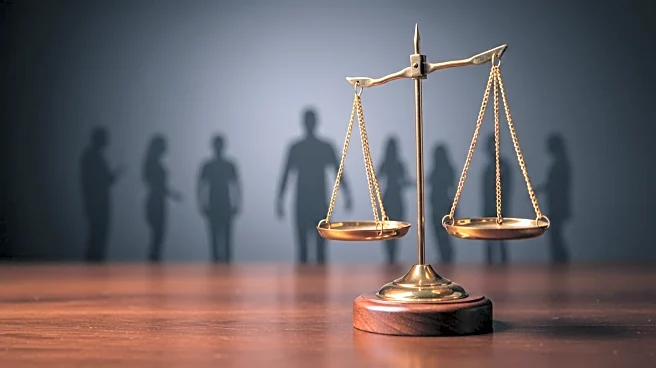What's Happening?
The Trump administration has announced a policy shift requiring immigrants seeking U.S. citizenship to demonstrate 'good moral character.' This change has raised concerns among immigration lawyers who argue that it adds uncertainty to the naturalization process. The policy is part of a broader set of immigration reforms under President Trump's leadership, aimed at tightening the criteria for citizenship. Critics suggest that the new requirement could complicate the path to citizenship for many immigrants, potentially leading to increased scrutiny and delays in processing applications.
Why It's Important?
The expansion of the 'good moral character' requirement could have significant implications for immigrants in the U.S., potentially affecting thousands of individuals seeking citizenship. This policy change may lead to stricter evaluations and longer processing times, impacting families and communities reliant on immigrant contributions. The move reflects the administration's broader immigration strategy, which has been characterized by increased enforcement and tighter controls. It could also influence public opinion and political discourse around immigration, as stakeholders debate the balance between security and inclusivity.
What's Next?
As the policy takes effect, immigration lawyers and advocacy groups are likely to challenge its implementation, seeking clarity on what constitutes 'good moral character.' The administration may face legal challenges and public protests from those who view the policy as discriminatory or overly restrictive. Additionally, Congress could consider legislative measures to address concerns raised by the new requirement, potentially leading to debates on immigration reform. The outcome of these discussions could shape future immigration policies and the experiences of immigrants in the U.S.










